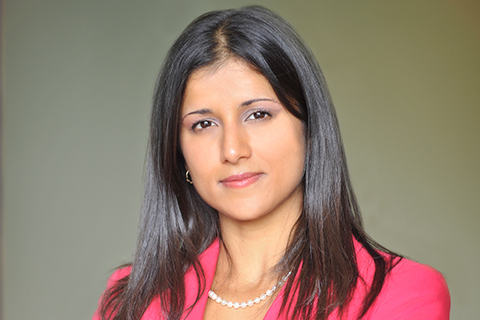Aisha Ahmad’s work explores how money affects conflicts, particularly in the Muslim world. Below, she talks to deputy editor Stacey Gibson about the forces behind war.
We tend to think of wars as ideological conflicts. Why is money often key?
Outside of a conflict zone, people talk about culture and religion. Inside a war zone, everyone talks about money. The availability of resources drives the trajectory of a conflict and the motivation of its actors. War is expensive. Money enters conflict zones through many channels: business communities, trade, humanitarian aid, criminality, extortion networks and covert military assistance. Each has a role to play in perpetuating the conflict. And where armed groups get their money from really shapes how they behave.
Can you give an example?
In 2006 in Somalia, a grassroots social movement called the Islamic Courts Union (ICU) took control of 90 per cent of the countryside. They essentially won the civil war, until the international community forced them out of power in 2007.
However, the ICU actually came to power in Somalia because it received significant financial support from the Mogadishu business community, who were fed up with the high price of clan-based warlords. For every $100 that the business community had to pay to the warlords for “protection,” they could give $35 to the ICU to remove the warlords. So between 2004 and 2006, business elites collectively decided to invest in the courts.
With this financial support, the ICU was able to beat the heavily entrenched warlords that had dominated Mogadishu for 15 years. Within six months, they took over the country. The real kingmakers in that competition were the people with the money. And when you look at the ongoing situation in Somalia today, the exact same rational, economic processes are still driving the conflict.
What is the role of international aid in transforming a conflict environment?
Aid fosters dependency and fuels corruption networks in a conflict zone. When resources come from the outside, the state floats above its population with no accountability to its citizens. Aid-dependent states also learn that you get a paycheque if there is a crisis – and therefore if you actually resolve your crisis, you’re out of money. So the aid industry actually incentivizes the perpetuation of humanitarian crises. The solution isn’t aid; it’s legitimate business and smart taxation.
Can you tell me about your new course, International Relations of Ethnic Conflict?
Ethnic conflict is often considered a domestic politics issue. But ethnic wars often affect the entire regional neighbourhood through the spread of small arms, the flow of refugees, and incitement of violence across borders. Ethnic conflicts spread; they’re contagious. The course puts civil wars in an international context.
What do you hope students will take away from your work?
A lot of students say they want to make the world a better place. I always tell them you have to know something before you do something. Knowledge without action is unjust, but action without knowledge is criminal. A world-class research university is a great place to start that learning process.
Watch Aisha Ahmad’s 2013 TEDx UofT talk on “Forgiveness in War”:
Recent Posts
People Worry That AI Will Replace Workers. But It Could Make Some More Productive
These scholars say artificial intelligence could help reduce income inequality
A Sentinel for Global Health
AI is promising a better – and faster – way to monitor the world for emerging medical threats
The Age of Deception
AI is generating a disinformation arms race. The window to stop it may be closing





